Nishi Grover is a dietician who has been practicing in for over 30 years in New Delhi. In her book on dieting, she talks about the need to relearn how one eats.
She finds a mention in Kalli Purie's weight-loss memoir. Described as DD or Dominatrix Dietician, Nishi Grover's advice to Purie, as to all her clients, was to relearn how to eat.
We bring you an exclusive excerpt from her book Lose a Kilo a Week:
In this chapter, I am going to take you through a few basic but vital things -- why you eat the way you do, acknowledgement of the issue of being overweight, learning to say no, and relearning how to eat. But before we begin, I want you to take this short quiz.
It'll throw up some interesting and eye-opening results...if you're honest.
The Emotional Atyachar Quiz
Q1. Do you find yourself eating when you're not really hungry?
a) Yes
b) No
c) Occasionally
Q2. During tough times, are you prone to unhealthy behaviours (eating unhealthy food, getting less sleep, binge drinking, etc)?
a) Yes
b) Very rarely
c) Not at all
Q3. Do you have confidence in yourself?
a) Not at all
b) Of course
c) Yes, but I'm not overconfident
Q4. Do you find excuses not to exercise?
a) Yes
b) Not at all
Q5. How many times a week do you exercise?
a) Never
b) Twice
c) Four times
Q6. When the going gets rough, do you find it hard to keep yourself motivated?
a) Yes
b) No
c) Occasionally
Q7. Do you eat breakfast every day?
a) No
b) Yes
c) Occasionally
Q8. Have you been eating larger portions than usual?
a) Yes
b) No
Q9. Do you often eat more than you need to and then feel heavy and guilty?
a) Yes
b) No
c) Occasionally
Q10. Do you eat at unusual times??
a) Yes
b) No
c) Occasionally
If you've answered mostly a's you have to wake up and listen to those warning bells ring because you, my dear, are an emotional eater. And you're not even aware of it!
How to lose a kilo a week!
Image: Learn how to manage emotional eatingSudha is 26 years old, works in a prestigious advertising firm, and generally loves her job. She is gregarious and doesn't worry too much about life. On the occasions that she has a fight with her roommate she finds solace in the kitchen and churns out dish after dish. She calls herself a foodie but she actually isn't. Sudha says, 'I like cooking, it cheers me up, and after a hard day's work it's nice to know that I can drown my sorrows in chicken and mutton.'
When I told Sudha she was an emotional eater, she didn't believe me and said that there was a big difference in being a foodie and eating because of emotional reasons. She, of course, was wrong, because her eating has got her weight up to 86 kilos.
We've all been there -- finishing whole packets of chips out of boredom or eating one thing after another at the slightest hint of pressure. Emotional eating is when people use food as a way to deal with feelings instead of to satisfy hunger.
It's akin to a chain smoker, who lights up one cigarette after another to keep the pressure at bay. The occasional binge may seem harmless, but emotional eating can escalate into something more serious and difficult to control if it's not checked in the initial stages.
Most people eat emotionally. They don't even realize that they're doing it till one day they step on to the scales and find out how far they've come from the healthy mark.
If you get into a fight or someone is rude to you, you immediately find comfort in a tub of ice-cream. And who is to blame you? Food is comforting; it is one of the only daily things that directly connect us to our childhood.
However, not many of us make the connection between eating and our feelings. But understanding what drives emotional eating can help people take steps to change these patterns.
The strange thing is that emotional eating need not arise because of a negative feeling. In fact, most of us like to indulge when we're in a good mood or just got a big bonus. Eating emotionally is a learned thing. Observe how a mother gives her daughter an ice cream after a test at school. What the child will do is associate food with reward and psychologically will imbibe the reward aspect of achievement and connect it with food. We, as parents, should be careful to not reward our children with excessive junk food or sweetmeats. As it sets about a cycle that becomes very difficult to break later on in life.
How to Manage Emotional Eating?
Next time you reach for a snack, stop and check whether you are really hungry. Check to see if there's something that is bothering you.
- Is there a deadline that is looming?
- Have you been getting pressurized by your boss?
- Are you fighting with any loved ones, family, or colleagues?
If yes, you've got to tackle those issues first because that's where you're probably getting your false hunger pangs from. If you can't find what's bothering you then, do something to distract you.
Call your mother or friend and just have a chat. If you have a pet, take it out for a walk. Watch a movie.
Spring clean! Anything to take your mind off it. Most emotional eaters also don't exercise at all, and that is probably why they're eating so much in the fi rst place. I'll repeat this over and over again, but there is no substitute to a good exercise regime. It can cure most of your devils.
If you really need to put something in your mouth, make yourself a healthy snack instead of chips and coke. Have a fruit or a whole wheat cucumber sandwich.
Never enter or go near your kitchen or larder if you're upset or have just had a fight with someone or even when you're extremely happy. Chances are you'll clear it out and then feel worse for eating so much. Stay far away from it -- better still, go for a walk. Nothing like some fresh air to calm you down and help you stay thin.
Illustration: Uttam Ghosh
How to lose a kilo a week!
Image: If you accept you're overweight, you can work towards resolving the issueAcknowledging the Issue of Being Overweight
Leela, 39 years old and at 85 kilos, came to me with a rather confusing scenario.
'Nishi, I don't eat a thing all day and yet my weight doesn't budge from 85! What do I do?'
Leela, it seems, drank seven cups of black coffee through the day and ate two chapattis and a bowl of veggies for dinner. I was baffled -- how could she live on nothing but coffee the whole day and not faint out of sheer exhaustion, and two, how was she still
overweight?
I told her I couldn't take up her case as it was beyond me. A week later, a thought popped into my brain so I hurriedly rang her to ask. 'Do you have anything with your tea?'
She replied, 'Well...two or three biscuits, yes.'
'What biscuits? Be specific.'
'Anything they bring in...those ones with nuts and other crunchy things.'
There was the culprit! One cookie has approximately anywhere between 60 to 200 calories.
If Leela was eating two biscuits with every cup of coffee, and drinking seven cups of coffee a day, then she was consuming a lot of extra calories without even knowing it!
Leela is what I call a denial eater. And so are most people. When clients call me on a Monday morning, begging me to put them on my programme I know they aren't sincere about it because they've had the weekend to eat and drink to their hearts' content.
Sab kha pee ke aa gaye.
If they were serious they'd be at my clinic on a Friday morning.
One of the first steps to losing weight is acknowledging that you have a weight issue.
After all, you are what you eat. It's only when you zero in on the issue will you want to take steps to battle the monster. You have to accept the fact that you are a denial eater. Or you'll remain in that state of denial till one day you wake up and discover aunty-ji arms, lack energy to go through the day, and feel bloated. The only way to do this is to accept the fact that you have an issue in the first place. One which can lead to life-threatening problems. One that you have to deal with before it's too late.
It is difficult because accepting that you have a problem is not always easy. But trust me it's an important step -- one that can get the entire journey started.
The best way to take the bull by its horns is by getting on to your weighing scales every day. When my clients come into the clinic in the morning, the first thing they do is weigh themselves. Not that they necessarily want to. It's something I insist on. So much has been said about weighing scales not being the true reflection of one's weight. But I can safely tell you that's all rubbish.
Weighing scales always tell you the truth, even if it's just water weight that you are losing. Stepping on the weighing scales is the fi rst step to understanding where you stand. It also helps you know how much you have to lose -- how much of the journey is cut out for you.
Avoiding the scales is like living in denial. If you don't already have one, you need to go out and buy a weighing scale. Preferably one that's digital. And make it your best friend, because it's going to know all your secrets. But first, you have to understand what your weighing scales are trying to tell you.
Illustration: Uttam Ghosh
How to lose a kilo a week!
Image: Learn to resist tempationLearning to Say No
I recently went to a friend's daughter's birthday party. After the cake was cut, her chirpy five-year old came bounding up to me with a piece. I, however, don't eat sweets, so I said to her, 'Darling, it's your birthday. Why don't I feed you some?'
The little girl wagged a finger at me. 'Nishi, I'm diabetic. I don't touch that stuff.'
I was amazed by this five-year-old's dedication and unwavering ability to stay off something other kids her age were going nuts about. I wondered about my clients, all grown-ups, who found it so difficult to say no. And here was a child completely kicking ass.
Saying no to people, especially to your loved ones, is a hard thing to do. Learning to say no is an art. Most people don't take kindly to a 'no'. They might feel that you are unkind, uncaring, or selfish. It will hurt and upset them and make them feel rejected.
Imagine paying your relatives a visit and trying to say no to them when they ask you to stay for tea. It's a no-win scenario where you don't really have a say.
You will be staying for tea, and what's more is that you'll end up eating everything, which will be a lot, they put out. But if you want to get thin, you've got to start saying no. The next time you're going to their house and are asked to stay, tell them that you have an appointment, or if you just can't weasel out of it, stay but make a conscious decision to maybe eat just one thing from that massive spread that is coming your way.
However, you don't always have to appear rude by doing so. The trick is to say no but then back it up with something nice.
For example:
Thank you so much for the invite. I would have loved to come if I wasn't so swamped. However, what are you doing on Tuesday?
See what I just did there? I said no, but I did it with tact. Remember to say it in a way that expresses respect and courtesy, and there will never be any unpleasantness.
Illustration: Uttam Ghosh
How to lose a kilo a week!
Image: Focus on the meal;enjoy itRelearning How to Eat
A very interesting photograph I once saw somewhere shows a group of Frenchmen, heads bowed as if in prayer, before their meal. However, they weren't praying, they were taking in the aroma arising from the food.
Eating is a graceful process. Look at a formal sit-down dinner, and the number of cutlery used is astounding. There are main plates, quarter plates, soup bowls, dessert bowls, salad bowls, wine glasses, water glasses, and I'm not even going to start with the spoons, knives, and forks. However, we've completely thrown all of it out of the window.
And fast food is ensuring that this lovely tradition becomes extinct. I call fast food hands-free food. I mean, do you use a fork and knife for a burger or a takeaway pizza?
And when at home, how many people actually sit down together, even if it's not together, at the dining table to eat? Most people lounge about on a sofa, watching television or are in front of their computers, Facebooking, while they shovel food down. The food has completely faded into the background. No one is paying any attention to it -- its taste, its colour, its consistency, its textures. We might as well be chewing cud!
There are a few things you need to correct before we even get down to the diet. These are lifestyle changes and believe me when I say this that they make a world of a difference.
1) Sit at the table
The first thing I want you to correct is this. I want you to sit down to eat and take your time while you're doing it. You aren't that busy that you need to eat everything in a hurry. You must eat at the table.
No lounging, no slouching, or lying down. Our food needs to travel directly to the stomach and to ensure that it does, you need to sit straight.
2) Never multitask while eating
The truth is that most overweight people multitask or don't sit down while eating. Multitasking while eating is the worst thing you can do to yourself because you're not paying any attention to what's going into your mouth.
What you're eating is important and you need to give it its due attention for the food to be able to work its magic on you. See how everyone at the movies eats popcorn and slurps on Diet Coke while watching a movie.
First, if you're watching a movie, do just that. It's not possible that you can't get through two and a half hours without eating. And just the same way, if you're eating, try not to watch a movie, or help your kid with their homework or reply to pending mails. Sit and relax for at least one meal in the day with your family.
Aur yeh Diet Coke ka kya matlab hai? As if Coke is healthy anyway.
3) Concentrating on your food
Take time to look at what you're eating. Look at its colour, feel the texture, savour its different flavours. Only then will eating be a complete and wholesome experience.
Taking your time to eat also means you will eat slowly and eat less.
4) Chew every morsel
Those who eat slowly are less prone to gaining excess weight. Don't swallow your food in great mouthfuls. It takes 20 minutes for your stomach to send messages to your brain that it is full. If you chew your food slowly you will cover that time and not end up over eating. While a slow eater is chewing only one forkful, the faster one will deliver three of them into his mouth! Most people eat in a hurry and end up over eating. This leaves them feeling stuffed and makes them slow and sluggish. There is an old saying that you should leave the table feeling half full, and there's immense wisdom in it.
If you can make these small but significant lifestyle changes of eating correctly, half your battle of weight
Notes to self
- I love food, however, I've got to stop loving it so much because it's not doing me too many favours.
- Hello, table, my new friend!
- Wow, I didn't know how many different flavours there were. All I needed to do was to concentrate on my food.
- This chewing slowly business is really working. I'm starting to eat a little less than I used to.
- I want to check my email but dinner is ready. Which one am I going to choose because I can do only one thing at me?
- Shiny shiny cutlery!
Illustration: Uttam Ghosh
Excerpted with kind permission from Random House India.

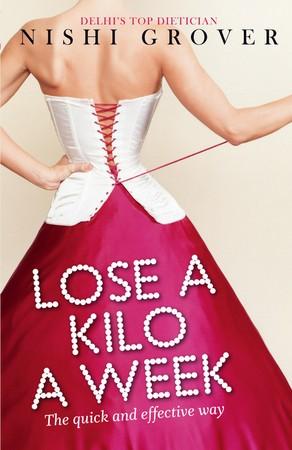
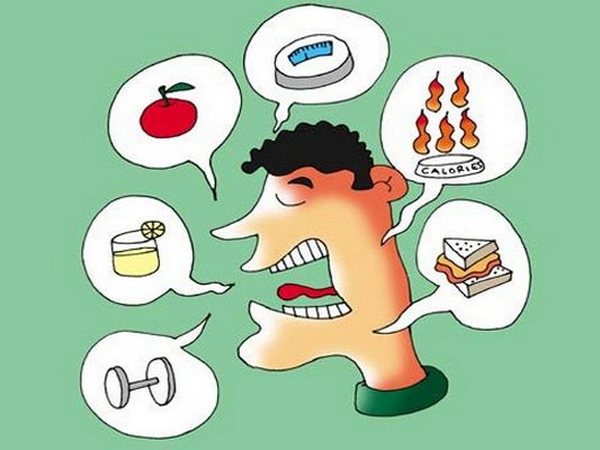
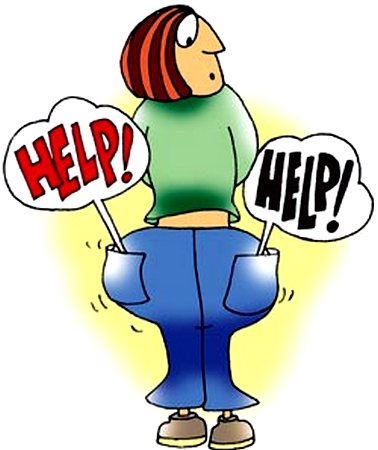
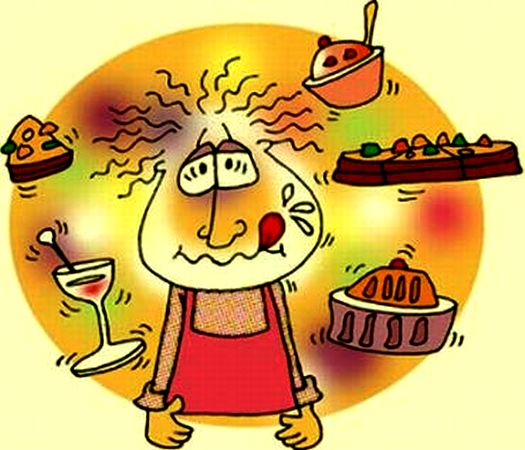
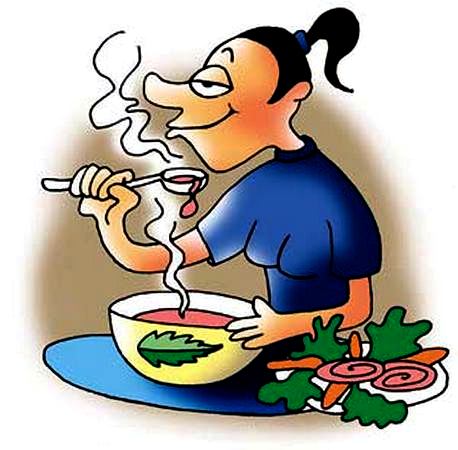
Comment
article